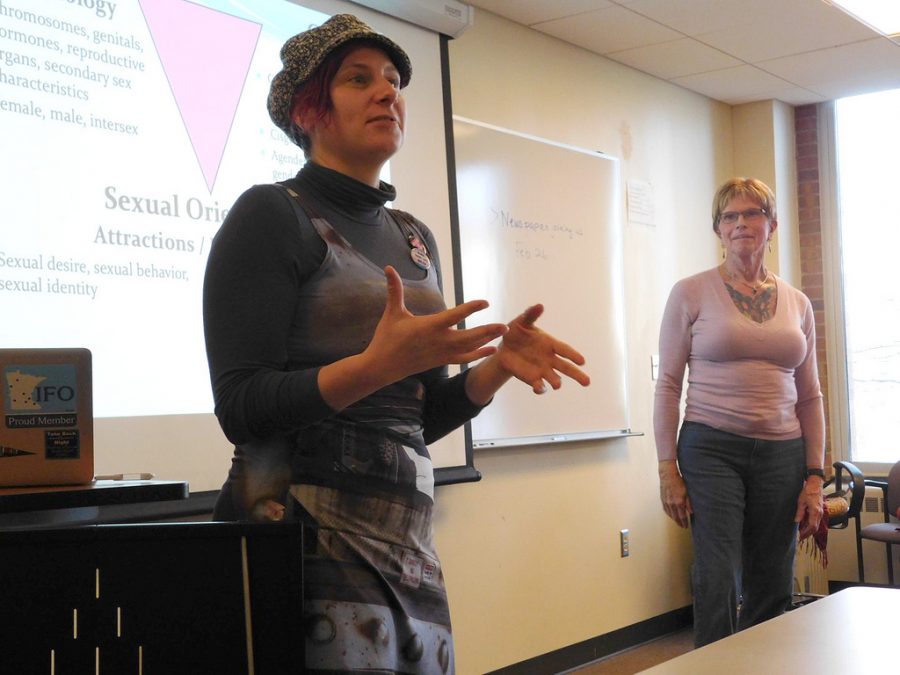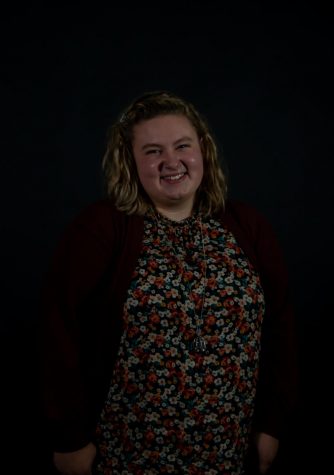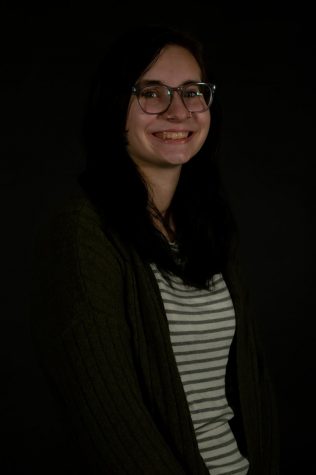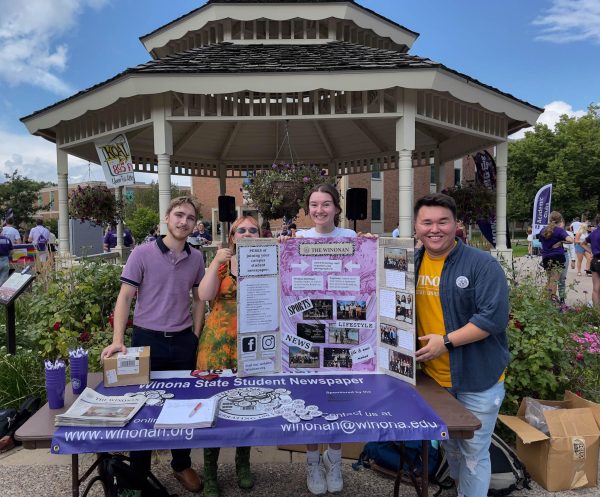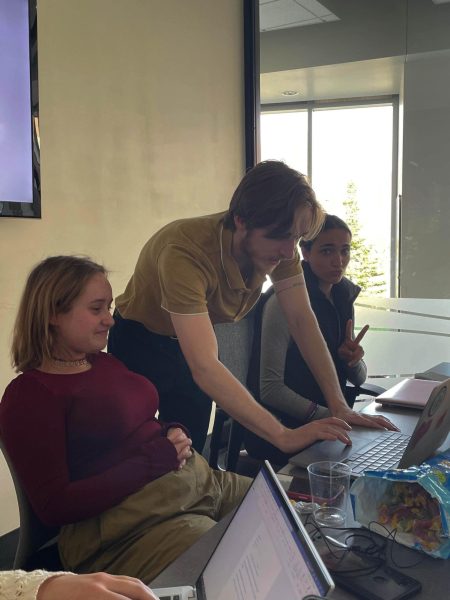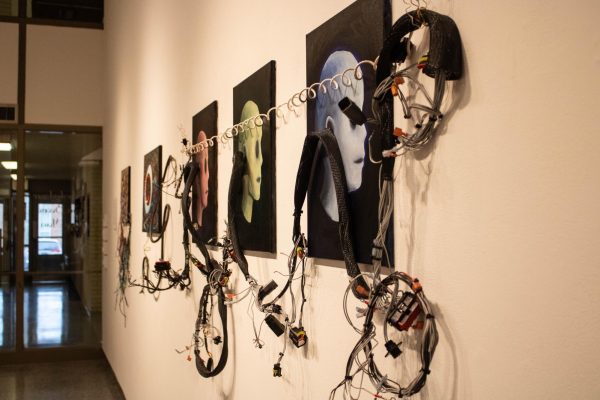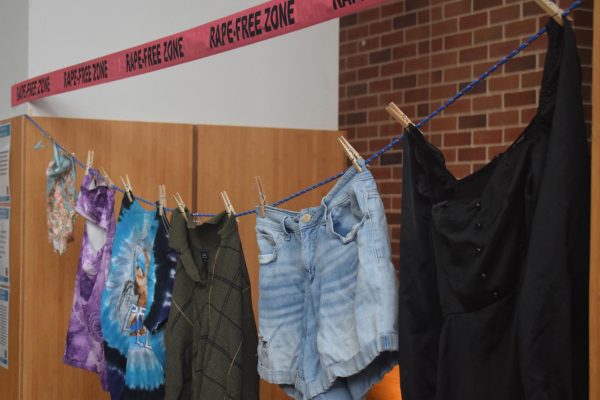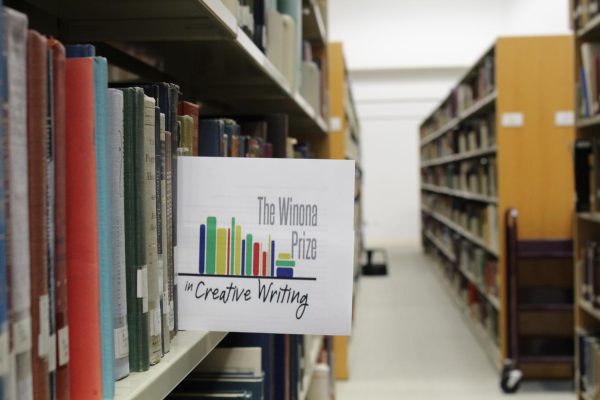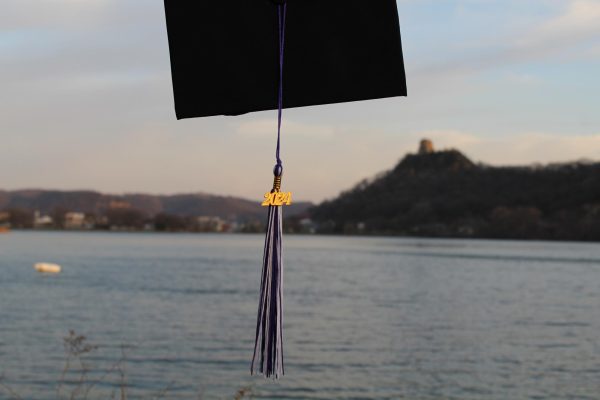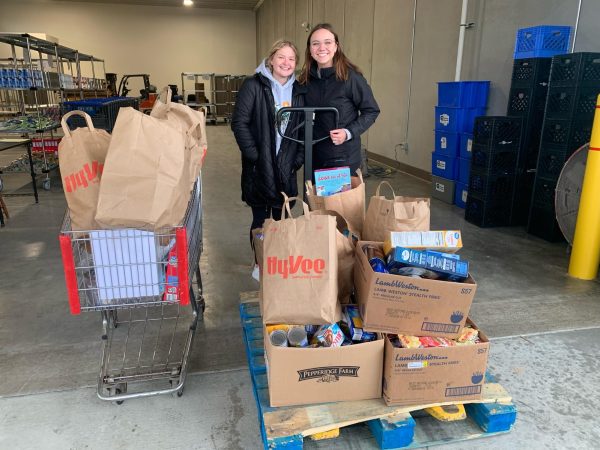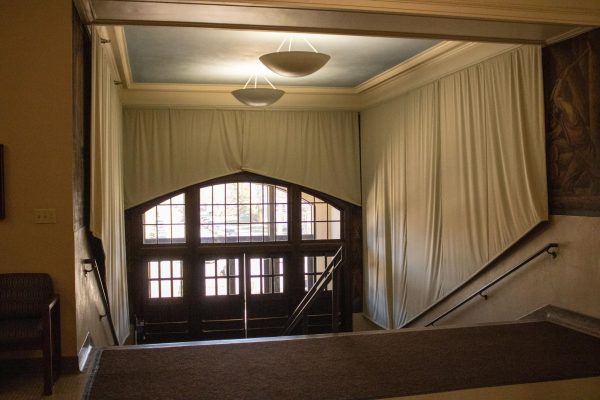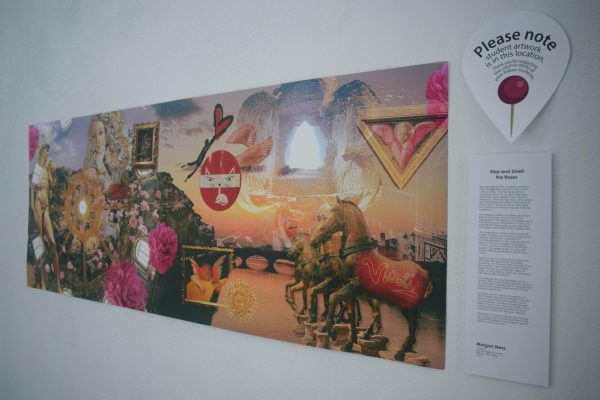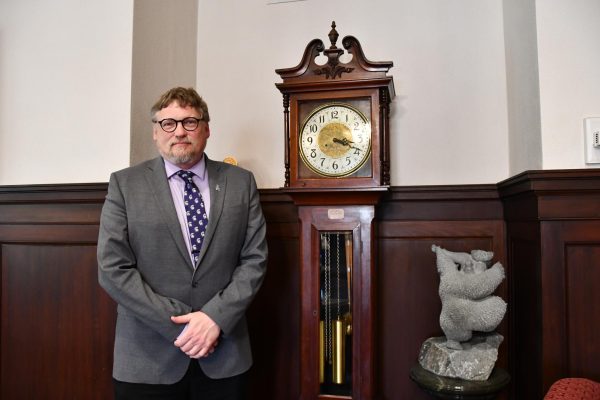The “InQueery” on the LGBTQ+ Community
Mary Jo Klinker, a professor in the Women, Gender, and Sexuality Studies department, works with her colleague, JamieAnn Meyers, to host a class through the WSU Retiree Center’s Senior University. The class covers topics such as what the word “queer” really means, and other ideas around sexuality. The class meets on Tuesday nights from 3:00-4:30 p.m.
February 27, 2019
On Feb. 19, the Winona State University Retiree Center’s Senior University program hosted the first class of “Inqueery: What’s the ‘Q’ in the LGBTQ+ Alphabet Soup?”
The class, taught by Mary Jo Klinker and JamieAnn Meyers, was the first in a series of five classes about queer identities, history and projected future. Klinker is an associate professor of Women’s, Gender and Sexuality Studies at Winona State, and Meyers is a retired geology professor at Winona State.
As participants entered the classroom, they were greeted by both professors and given a folder with information on the class.
Students were given a brief history of Klinker and Meyers’ experience in educating about and advocating for the LGBTQ+ community, then watched a YouTube clip from The Late Show. The clip was an interview with Stephen Colbert and Ellen Page wherein Page talked about the “hateful leadership” in the White House. Page especially called out Vice President Pence in his support of conversion therapy for LGBTQ+ children.
After watching the clip, participants shared their names, preferred gender pronouns and why they chose to attend the class. Some expressed concerns for privacy, while others chose to tell stories of their families and friends coming out as LGBTQ+. Klinker especially appreciated this.
“I noticed a lot of you came here because you just want to be better allies, and I’m really grateful for that,” Klinker said. “But many of you came here because members of your family—people you love—are coming out and you want to support and love them. That’s why we wanted to be here.”
The class then went through the difference between sex, gender and sexuality, as well as the history of the term “queer.” Students were asked to share about the first time they heard the word and what sort of implications came with the term.
Klinker and Meyers then shared their experience with the term “queer” as well as answered questions about their coming out journeys. They then ended the class asking students if they had questions about the reading, their presentations or their journeys.
In 2016, Klinker and Meyers led a similar class for Senior University focused around the LGBTQ+ community, as Caitlyn Jenner had just come out on the 20/20 interview with Diane Sawyer.
Meyers also wanted to teach the class because the Winona Daily News has just published a seven-part series called “Becoming JamieAnn” on her gender transition and coming out as a transwoman.
Meyers noticed a lot of students being surprised or offended when they used the term “queer,” as it has a contentious political and social history. The two then waited a few years before teaching a class on the term itself.
“People were really receptive on the content we were teaching, but every time one of us used the term ‘queer,’ it really raised some eyebrows,” Meyers said. “People thought it was a pejorative term, and it is in the context that many people use it. However, the context of the term, as well as who uses the word, really influence what it exactly means.”
While the two found it was helpful to focus on aging queer perspectives in their 2016 class, they wanted to focus on protecting queer youth for their 2019 class. According to a study done by the Harvard School of Public Health, LGBTQ+ people and people of color are twice as likely to experience job discrimination. Twenty percent of people in juvenile justice facilities identify as LGBTQ+ and LGBTQ+ youth are much more likely to face homelessness at least once in their lifetime.
Because of all of these reasons, Klinker and Meyers wanted to find out what older people wanted to know about the community and open a discussion about it as a way to protect these people. To do this, they sent out a form that allowed students to ask questions about the LGBTQ+ community and formed their syllabus around it.
As Klinker teaches Intro to LGBTQ Studies and Queer Theories and Politics on campus, she is familiar with teaching about queer media, politics, history and direction. However, she also noted how different the experience is between teaching typical college-age students and older students from the community.
“Many younger students are not as apt to asking questions, especially when they feel they could be read as the incorrect language,” Klinker said. “The really liberating thing about this type of class is the willingness from these older students to ask those questions. It transforms the educational space.”
In the past decade, the use of the word “queer” on campus has changed. When Dr. Klinker started the Queer Theories and Politics class on campus in 2014, she received pushback as her colleagues thought the word was a slur.
Full Spectrum, Winona State’s Gender and Sexuality Alliance now uses the term “queer” inside their discussion and social spaces. Meyers stressed that the use of the term is always changing and will continue to do so as new generations come.
Because of the adverse weather conditions, one of the classes had to be cancelled. Many of the students in the class expressed how much they wanted to not rush through material, but still schedule another class so they would be able to learn the most they could. Klinker took this as a positive sign of change.
“Knowledge can be transformative in politically violent times,” Klinker said. “We are hoping that with such an excited and engaged group of students, we can really create this open discussion about the term queer and what it means. We want to protect queer youth, and this is a great opportunity to help them.”























































